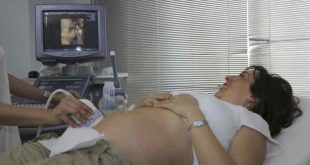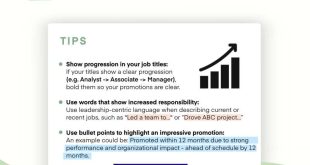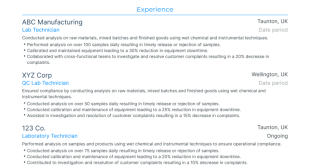How To Become An Ob Gyn Nurse Practitioner – A Women’s Health Practitioner (WHNP) is a registered advanced practice specializing in the comprehensive care of women across the lifespan. If you’re thinking about becoming a women’s health NP, this career guide will give you all the information you need to make that decision and start you on the path to becoming one.
A women’s health professional is a type of practitioner who focuses on the reproductive, obstetric, and gynecological health of women of all ages. But more importantly, this position focuses on women’s health across the lifespan and often does so in a primary care office rather than a hospital or delivery room.
How To Become An Ob Gyn Nurse Practitioner
It is important to note that this position is similar to, but very different from, a Certified Midwife (CNM). A women’s health NP spends less time focusing on the pregnancy and delivery of a newborn than a CNM. It is still part of their duties and responsibilities, but some spend a small percentage of their time caring for these types of patients.
Doctor Vs. Nurse Practitioner Career Differences
Women’s health NPs care for women throughout their lifespan and are therefore responsible for a variety of tasks. These responsibilities depend on the job but may include:
According to Glassdoor.com, women’s health NPs earn an average of $133,649 per year. Payscale.com reports a median annual salary of $96,601, or about $49.61 an hour.
According to the Bureau of Labor Statistics, the median salary for practitioners in 2021 was $123,780 per year, or $59.51 per hour. Unfortunately, the BLS does not distinguish between different types of practitioners.
Regardless of the job setting, full-time and part-time jobs have the same benefits. While actual benefits may vary by institution, most include:
Types Of Nursing Degrees And Career Paths
You must earn an ADN or BSN in an accredited nursing program to take the first step toward becoming a registered nurse. ADN-ready users must complete an additional step toward earning a BSN degree or enter an accelerated RN-MSN program that allows them to earn a BSN and MSN at the same time.
Depending on their unique circumstances, they may choose to gain nursing experience before returning to school or go directly into an MSN program. If you worked before continuing your education, you may want to work in a related field, such as OB.
Enroll in an MSN/NP program that offers a program to become a female healthcare professional. For tips on getting into nursing school, see the article What we need to know when applying to nursing schools.
The National Certification Corporation offers the Women’s Health Professional (WHNP-BC) certification. This certification is available to APRNs who meet the following criteria.
Gyn In Elmont
CEU hours vary by license status. Each state requires an individual licensed, CEU hours. In general, NPs must complete at least 75 contact hours of continuing education in a specialty (orthopaedics).
Additionally, even though they work in the APRN role, they must maintain their RN certification. In order for an individual to renew their RN license, they must complete an application, meet a certain number of CEU hours and pay a nominal fee. Each state has specific requirements and it is important to consult with the Board of Nursing before applying for license renewal.
According to the US Bureau of Labor Statistics (BLS), the career outlook for NPs is excellent. As of 2021, there were 300,000 practitioners in the United States, with 118,600 providers expected in 2031. This is a 40% increase.
In addition, the American Congress of Obstetricians and Gynecologists estimates that there will be a shortage of nearly 9,000 obstetricians and gynecologists (OB/GYN) by 2020, and a shortage of 22,000 by 2050. Women’s Health NP fills this void.
What Is A Certified Nurse Midwife And How To Become One?
A 2019 study found the following 10 metropolitan areas most likely to experience shortages:
Additionally, it was determined that the number of OB/GYNs is not the only problem. The researchers also emphasized the importance of demographic information for practice providers. The report found that nationally, 35% of OB/GYNs are 55 or older, and at least one-third of OB/GYNs in 33 of the 50 regions evaluated are 55 or older.
Being a female healthcare professional is a fulfilling and rewarding career. This role allows people to care not only for pregnant women, but pre-menstrual, post-menopausal and everyone in between. The demand for nurses in the medical field is increasing. Many clinics and hospitals recognize the value of these advanced practice nurses, and many registered nurses jump into the workforce to earn advanced practice certification to fill these gaps. Whether you’re already practicing as a nurse and thinking about advancement opportunities or looking ahead to your career and think nursing might be a good fit, consider nursing tutoring. Here’s a more detailed look at what a nurse does, how much they potentially earn, and what opportunities the field has.
Nurses are advanced nurses who can perform the same tasks as a doctor. They may work with other health care professionals or independently, depending on their state’s laws. In addition to diagnosing and treating medical conditions, they often focus on treating the whole person, disease prevention, and health education.
Women’s Health Nurse Practitioner Online Program (whnp)
The services a nurse practitioner provides depends on where they practice and what rules and regulations exist in their geographic area. In general, nurses can:
Like physicians, nurses may focus on a specific specialty area of practice, such as pediatrics or geriatrics, or provide general medical services.
Nurses are employed in most healthcare facilities and can coordinate care, diagnose illnesses, and prescribe treatments for their patients. They work as health professionals, advocates, researchers and educators. In some states, these specialists must report to a supervising physician, but in others they can practice independently.
Several skills make nurses good at their jobs. First, they must be good scientists. Medical school can provide a strong foundation of knowledge about many conditions, but sometimes patients present without typical symptoms. Nurses must dig deep to find the root cause of their patient’s condition. In addition, nurses should be able to analyze well, combining different ideas to find solutions that work for their patients.
Obstetrician Gynecologist: Expertise, Specialties, Training
Leadership skills are also important. Nurses need to be able to help people make the right choices about their health and well-being. They also often manage other nurses in the practice.
Good communication skills, even when dealing with cultural and language barriers, help nurses do their job well. In fact, communicating well with patients is one of the most important requirements for nurses.
Finally, these healthcare professionals must be able to cope well with stressful situations. The medical field is rewarding, but it can also be stressful. Nurses must be able to deal with these stresses with a calm and clear head as they guide patients and patients’ families through difficult times.
According to the Bureau of Labor Statistics, the average salary for nurses, nurse midwives and anesthesiologists is $117,670 per year. Those in the top 10 percent earn about $200,000 a year, while those in the bottom 10 percent earn about $84,000 a year. The highest paid nurses are nurses working in hospitals, followed by nurses working in ambulatory care centers.
Student’s Guide To 7 Types Of Nurse Practitioner Specialties
In most medical specialties, nurses have the opportunity to work as nurses. Some common types of nurses include:
Each of these majors has advantages and disadvantages, so consider your strengths and passions when considering where you want to study. If you are unsure, family practice may be the right choice because it allows you to work with a wide variety of patients.
Becoming a nurse begins with proper nurse training. Most nurses start with a bachelor’s degree in nursing, then gain work experience. Finally, they get a master’s degree. This may include a Master of Science in Nursing (MSN) or Doctor of Nursing Practice (DNP) degree. Nurses need practical training and certification before they can practice.
The time it takes to become a nurse depends on the individual nurse’s educational background. However, the process usually takes six to nine years.
Melanie Howard, Dnp, Aprn, Acns, Fnp
The cost of a nursing degree varies depending on how you earn your degree and which school you choose. The most expensive is to start with a bachelor’s degree, then a master’s degree, followed by a doctorate. If you get your BSN first and earn your MSN, you will need the fewest credit hours to begin practice. Depending on the program you choose, pay around $200 to $800 per credit hour.
Ob gyn nurse practitioner education requirements, how to become an ob gyn sonographer, how to become an ob gyn nurse, how to become an ob gyn, ob gyn nurse practitioner schools, ob gyn nurse practitioner jobs near me, how to become ob gyn nurse practitioner, ob gyn nurse practitioner, ob gyn nurse practitioner programs, ob gyn nurse practitioner near me, how to become ob gyn nurse, ob gyn nurse practitioner schooling



